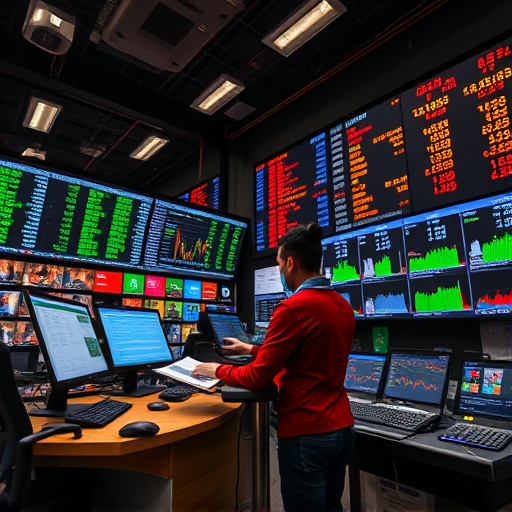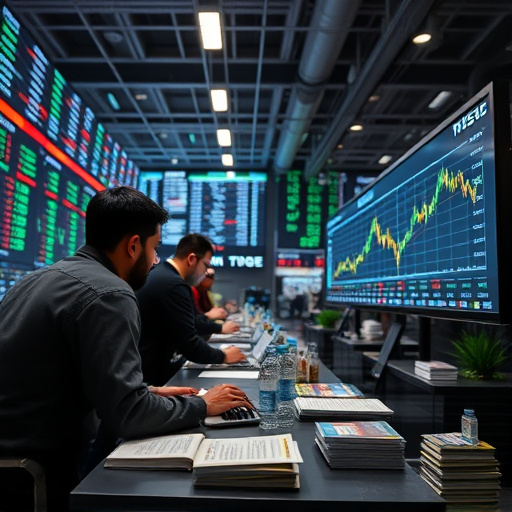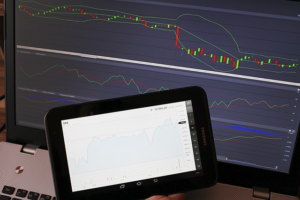Global Markets & AUD: Trading Education Unlocking Sunshine Coast Seminars
The Australian Dollar (AUD) is a dynamic currency heavily influenced by global market dynamics, including economic policies, trade agreements, interest rates, and geopolitical events. Understanding these factors, particularly through trading edu…….

The Australian Dollar (AUD) is a dynamic currency heavily influenced by global market dynamics, including economic policies, trade agreements, interest rates, and geopolitical events. Understanding these factors, particularly through trading education, is crucial for traders navigating the foreign exchange market. The strength of the AUD is closely tied to key global economies like China and Japan due to Australia's strong trading relationships with them. Staying informed about these dynamics allows traders to effectively manage risks and seize opportunities in international markets, especially when considering hedging or speculative trades through a comprehensive currency analysis approach.
“Sunshine Coast seminars shine a light on global market dynamics’ profound impact on the Australian Dollar (AUD), offering vital insights for traders navigating this volatile currency. With international economic factors, trade policies, and global events constantly shaping financial markets, understanding these influences is key to success in trading. These seminars, renowned for their comprehensive approach to trading education, equip attendees with expert guidance and practical strategies. Discover how to adapt to market shifts, make informed decisions, and thrive in the dynamic AUD environment through case studies and actionable tips.”
- Global Market Dynamics and Their Influence on the AUD
- – Exploring international economic factors affecting the Australian Dollar
- – Impact of trade policies, global events, and financial markets
Global Market Dynamics and Their Influence on the AUD

The global market dynamics play a pivotal role in shaping the strength and value of currencies worldwide, including the Australian Dollar (AUD). These dynamics are driven by various factors such as economic policies, trade agreements, interest rates, and geopolitical events. When considering trading education, understanding these global influences is essential for investors aiming to navigate the complexities of international markets effectively.
The AUD’s fluctuations are closely tied to the performance of key global economies, particularly those with strong trading relationships with Australia. For instance, economic growth in Asia-Pacific regions like China and Japan can boost demand for Australian exports, strengthening the local currency. Conversely, market volatility triggered by global crises or shifts in investment trends might lead to AUD depreciation. Staying informed about these dynamics is crucial for traders seeking opportunities or managing risks in the foreign exchange market.
– Exploring international economic factors affecting the Australian Dollar

The Australian Dollar (AUD) is influenced by a myriad of international economic factors, making it an intriguing and dynamic currency in global markets. Trading education often emphasizes understanding these global impacts to predict and navigate currency fluctuations effectively. Key elements include monitoring trade balances, interest rate differentials between Australia and other major economies, as well as the impact of foreign investment flows. Global events like geopolitical tensions, commodity price shifts, and central bank policies also play significant roles in shaping the AUD’s value.
Seminars on the Sunshine Coast, a popular destination for trading enthusiasts, often delve into these international economic factors, providing valuable insights to participants. By analyzing global market trends and their implications for Australia, traders can enhance their decision-making processes in forex markets, particularly when considering strategies for hedging or speculative trades. This holistic approach to currency analysis is essential in the ever-interconnected world of trading education.
– Impact of trade policies, global events, and financial markets

The Sunshine Coast seminars delve into the intricate relationships between global market dynamics and their ripple effects on the Australian Dollar (AUD). Trade policies, often shaped by international negotiations and agreements, play a pivotal role in determining the AUD’s strength. For instance, changes in tariffs or trade partnerships can significantly impact Australia’s export and import sectors, subsequently affecting the currency’s value. Global events, both economic and political, also exert substantial influence. Unforeseen crises, such as pandemics or geopolitical tensions, can trigger market volatility, causing rapid fluctuations in currency exchange rates.
Financial markets, with their ever-changing landscapes, are another critical factor. Global investors’ sentiment towards Australia’s economy, reflected in stock and commodity markets, directly impacts the AUD. Positive economic indicators and strong trading education can boost investor confidence, leading to an appreciation of the Australian Dollar. Conversely, market uncertainties or economic downturns worldwide may trigger a depreciation of the currency, underscoring the interconnectedness of global financial networks.
The Sunshine Coast seminars shed light on the intricate relationship between global market dynamics and the Australian Dollar (AUD), offering valuable insights for trading education. Understanding international economic factors, trade policies, and global events is crucial for navigating the volatility of the AUD in today’s interconnected world. By staying informed and adaptable, investors can make more informed decisions, capitalizing on opportunities while mitigating risks in their trading endeavors.







